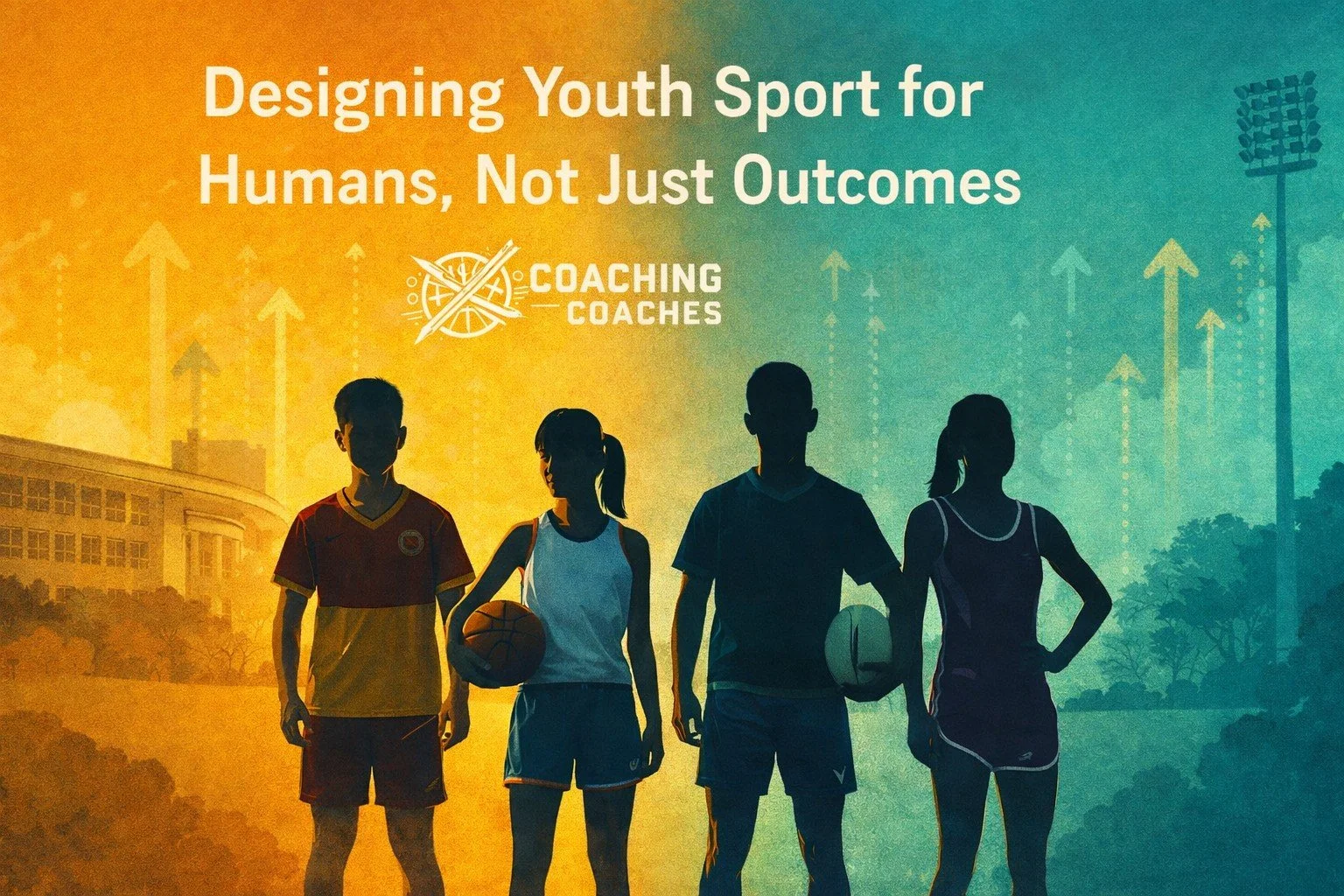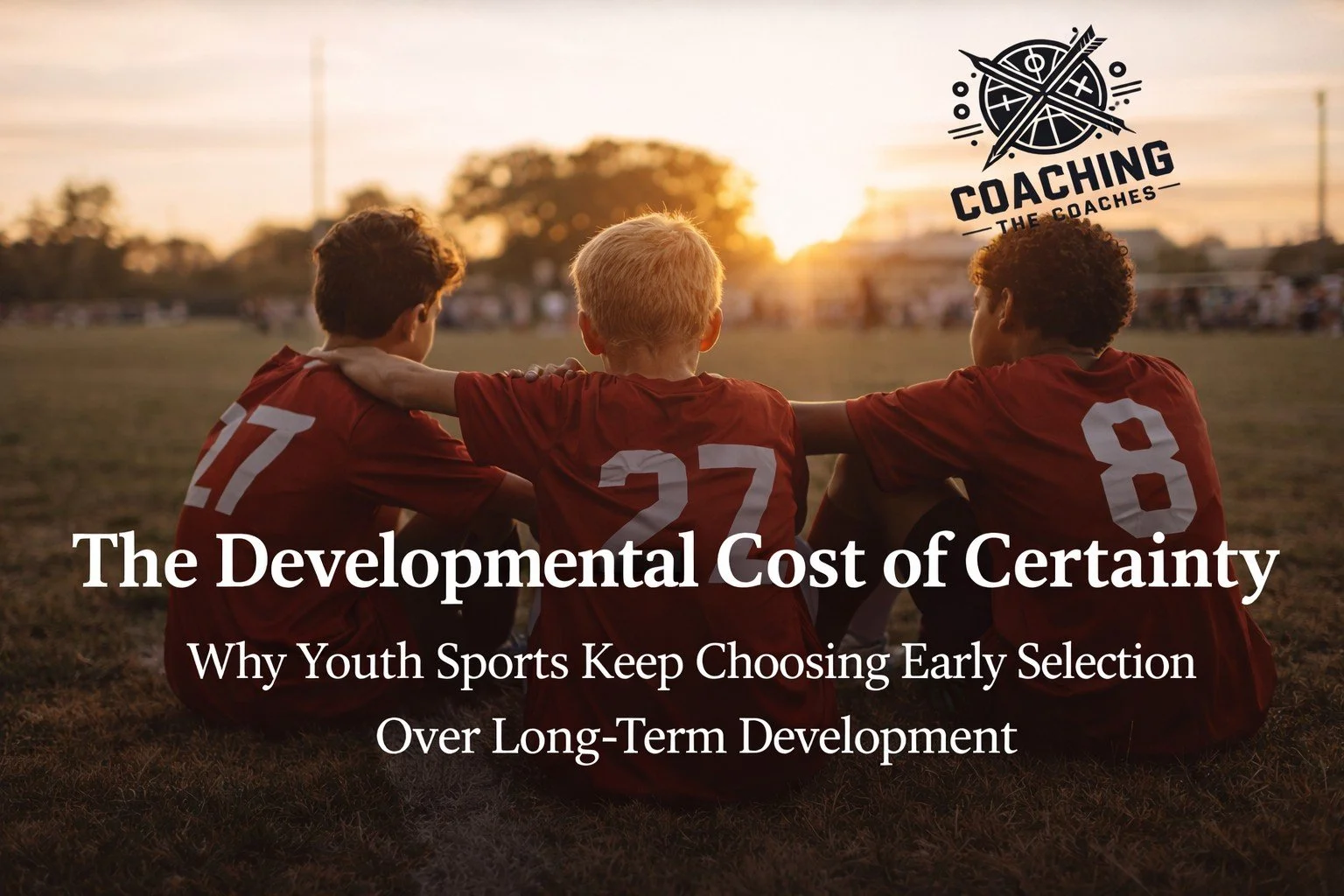Rebuilding the Village: Why Youth Sport Has Become One of Our Last Social Institutions....and Why That Matters
/Youth sport was never just about skill development. For decades, it functioned as a village — a place where young people were known, supported, corrected, and shaped by more than one adult voice. As other community institutions have weakened, sport has quietly inherited this role. The question is no longer whether youth sport carries social responsibility, but whether it has been designed to carry it well.
Read More





